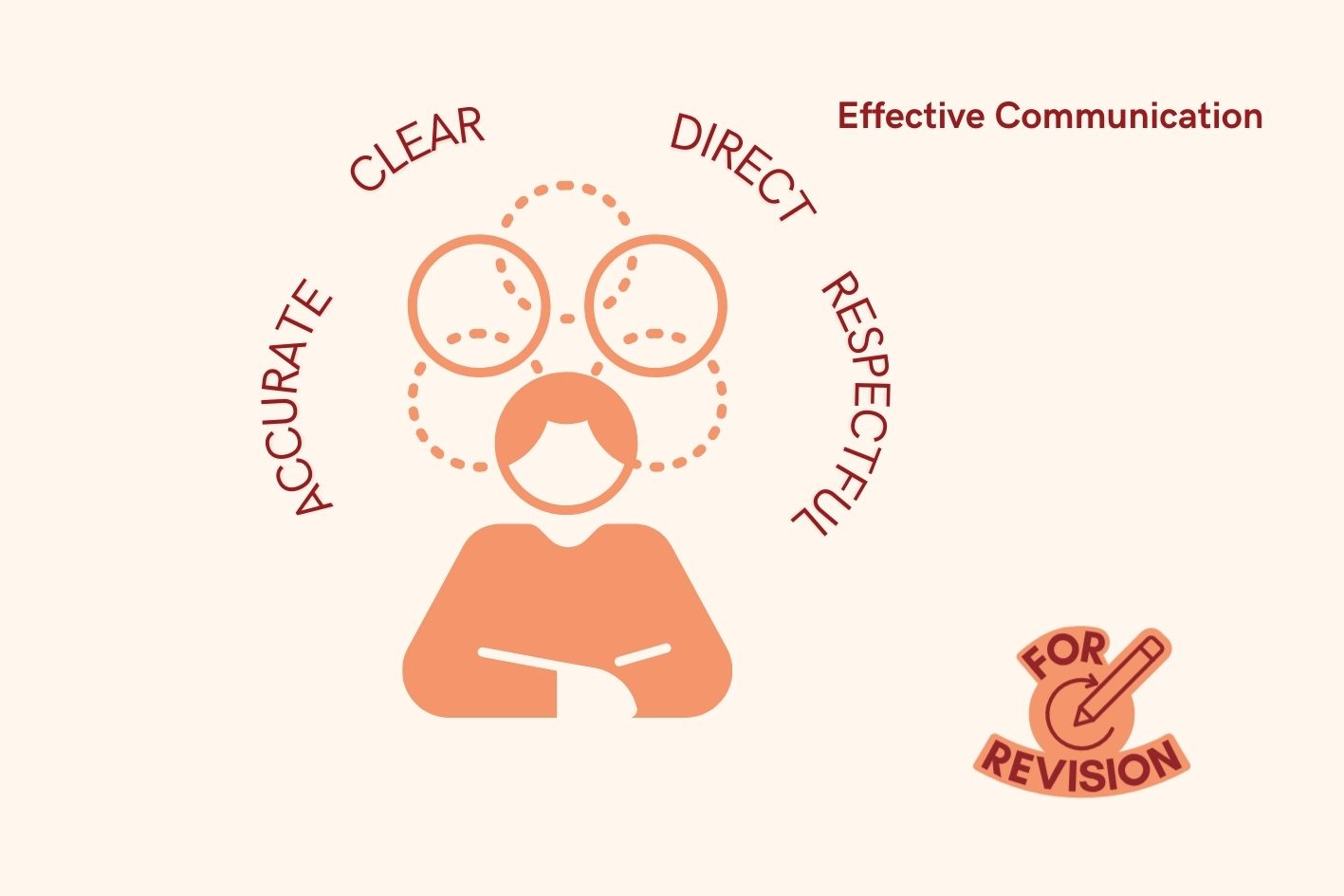
2 December 2024 Effective communication: the secrets to make yourself understood
Effective communication: what to do to make yourself understood
Sometimes it is difficult to have effective communication but making oneself understood is still an individual responsibility.
Making oneself understood can be difficult because communication is a complex process involving several levels:
- verbal level, related to the words used and the meaning attributed to them, which may be influenced by the context in which the communication takes place (physical, social, cultural);
- non-verbal levelThis concerns body language, tone of voice, facial expression and spatial distance, which often convey more information than words. And if there is a discrepancy between the verbal and non-verbal message, this can lead to misunderstanding and confusion, with an added difficulty;
- emotional levelwith the influence of emotions and moods on the transmission of messages. Thus, if we are, for example, angry, sad or anxious, we may interpret the words that reach us in a distorted way that does not adhere to the speaker's real intentions.
A good starting point for communicating and making oneself understood is therefore to listen carefully to what is happening during communication, beyond words.
This means concentrating on what the other person is saying, without interrupting and also trying to understand the way they are expressing their point of view.
If you lower the listening level of the person you are talking to, the risk of being misunderstood is quite high.
So what to do?
You can start by learning not only to listen carefully, but also to distinguish the factors that influence communication.
Filters, interpretations, generalisations against effective communication
Each of us has our own perception filter, influenced by past experiences, culture, values, personality and emotional state. This means that we interpret the same words and gestures differently.
We tend to interpret information according to our pre-existing beliefs. This can lead to misunderstandings and difficulties in understanding points of view other than our own.
Not to mention when we tend to think about what we want to say or formulate the answer while the other person is speaking.
Then there are times when we are not clear enough in expressing our thoughts and feelings; in these cases we use vague terms, make generalisations or do not give enough detail, imagining that the other person can instantly understand what we have in mind.
Contrary to this, communicating effectively means being clear, direct, and respectful;
in a word: assertive.

Communicating effectively: the key principles of assertiveness
To communicate effectively and be sure to be understood, it is necessary to learn to be assertive.
Assertive communication means communicating one's ideas, opinions and feelings clearly, directly and respectfully. Communicating assertively is easier if you know and follow some key principles such as the following:
1. Use clear and direct language
It means avoiding using vague or ambiguous phrases and expressing one's ideas concisely.
2. Speak in the first person.
Talk about how you feel and what you think using statements in the first person. For example, instead of saying "You should not have done this ...', one could say 'I felt hurt when you did this ...“
3. Focus on the present.
Avoid talking about the past or making assumptions about the future. Focus on what is happening in the present moment.
4. Be specific.
The more specific one is, the better the other person will understand our point of view. For example, instead of saying "I don't like what you did", one could say "I don't like you talking about me behind my back."
5. Maintain a calm and confident tone of voice.
Avoid shouting or aggressive speech and maintain a controlled and firm tone of voice, even if you feel angry or frustrated.
6. Be willing to compromise.
It is not always possible to get everything you want; it is important to be willing to look for a solution that will work for both of you.
7. Respect the other person, even if you do not agree.
Even if you disagree with the other person, it is important to treat them with respect, avoiding insults or personal attacks.
8. Focus on the behaviour, not the person.
When expressing criticism, it is possible to focus on the specific behaviour that we did not like or that hurt us rather than on the person himself. For example, instead of saying "You were arrogant", one could say "I was hurt that you spoke arrogantly.”
Being assertive is not merely a matter of style but a chance to make the other person understand what we really care about.
Why communicate effectively in work situations
There are many situations that can arise in the workplace where assertive communication is of utmost importance. Here are some of them:
- In negotiations: to defend one's interests and find mutually beneficial solutions.
- In meetings: to express one's opinions and assert one's points of view.
- In conflict management: to resolve differences constructively and maintain a positive working climate.
- In delegation: to assign tasks clearly and achieve quality results.
- In asking for feedback: to improve individual performance and grow professionally.
Assertive communication is a skill that can be learnt and trained to improve working relationships, and to convey one's thoughts, feelings and needs clearly and directly.
With effective communication, people clearly understand what we expect from them, and we better learn what they want from us.
Conclusion: communicating effectively is important
Being able to convey one's thoughts clearly allows one to avoid misunderstandings, resolve conflicts and be understood, and to be heard by other people.
For these reasons, it is useful to use assertive communication both in private life and at work, and one can learn to do so by knowing the factors that influence communication and the key principles of assertive communication.
In order to be effective in communicating, it is necessary to go beyond the mere way of speaking: it is a deeper situation, which concerns both what one says and how one says something.
Thank you for reading the article.
What are your main communication challenges?
Do not hesitate to contact me to work together on your communication to make it effective.
You may also be interested in reading:
From ghosting to constructive feedback: how to change communication mode
